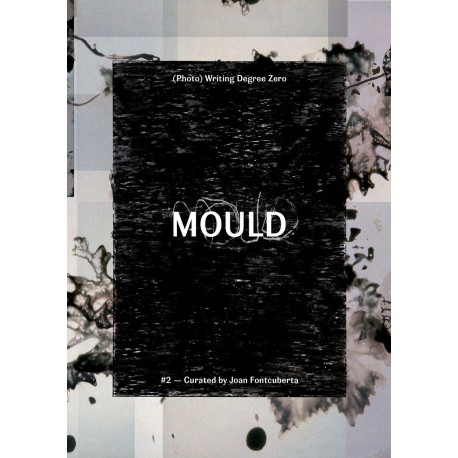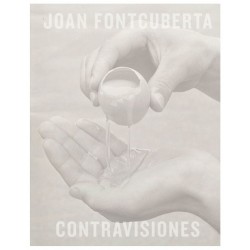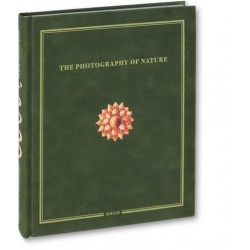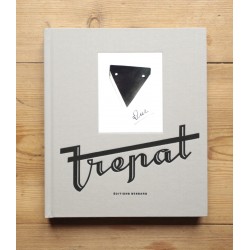Aucun produit
 Agrandir l'image
Agrandir l'image MOULD 2
978-8894036817
Neuf
Présentation par Joan Fontcuberta, éditeur invité de ce numéro MOULD #2 :
"Images are so powerful that they can even provoke casus belli, as recent events like Muhammad’s caricatures and the Charlie Hebdo tragedy witness. The history of thought is also the history of images. That is why philosophers deal with the urging need to decode what an image is.
Since the 90s, significant changes in the visual standards, as well as in social and technological issues, have brought about a pictorial turn and, as a consequence, the emergence of the Visual Studies. This pictorial turn doesn’t just refer to the proliferation of images and ensuing increasing interest in them, but it circumscribes a segment within the study of culture that considers reality to be crystallized into images.
However, if philosophers are expected to define what images are, it’s up to artists to tell us what they consist of.
The transition from chemical to digital photography, from silver salts to pixels, has encouraged us to focus on its quintessential nature, on its most basic elements.
How could we define the photographic writing degree zero?
The overview we’re carrying out in this issue of MOULD takes into account some photographic works that, starting from the minimalism approach onwards, encapsulate the most essential qualities of the photographic image (light and shade, imprint, chemical reaction, darkroom, optics etc).
That is to say generative, formalist and conceptual operations that somehow determine the nature of the images that shape our visual culture nowadays."
Curated by Joan Fontcuberta, this issue tackles the emergence of visual studies as a response to significant shifts in visual standards, as well as in social and technological issues, that have taken place since the 1990s. Not only does this refer to the increasing proliferation of images, but also studies the cultural repercussions of the crystallisation of reality into images. The generative, formalist, and conceptual notions that inform today’s visual culture are encapsulated in these pages through works, analyses, and critical insight.
Featuring contributions by Pierre Cordier, Gundi Falk, László Moholy-Nagy, Gottfried Jäger, Alison Rossiter, and Andrew Wright, among others.
200 pages - Couverture souple
Mould Press / Rubbettino Editore, 2015
Neuf - Aucun défaut
Attention : derniers livres disponibles !

Fontcuberta, Joan
Joan Fontcuberta est un photographe contemporain espagnol d'origine catalane. Un amoureux du faux et de la mise en scène, qui se sert de l'humour pour dénoncer la manipulation cachée sous les images. « Les images sont notre mémoire, notre imaginaire, notre inconscient » Dans ses oeuvres, l'Espagnol Joan Fontcuberta met en scène des images qui imitent en tous points les démarches scientifiques, les reportages journalistiques, les récits religieux, les discours des musées... sauf que tout est faux. Ses œuvres sont exposées au MoMA de New York, au Centre national d'art et de culture Georges-Pompidou à Paris. Plusieurs fois primé, son travail a reçu entre autres le Prix Hasselblad de la photographie (2013). Photo : © auto-portraitPrésentation de Ediciones Anómalas : [traduction L'Ascenseur Végétal] " Au cours de l'année 2020 nous avons eu l'occasion de consulter en détail les archives de Joan Fontcuberta’s archive, et plus précisément, celles correspondant aux premières années de sa carrière de photographe. Notre recherche a été, bien entendu, partiellement influencée par le...
40,00 €DisponibleThe Photography of Nature & The Nature of...
.Stock épuisé.Catalogue du "Hasselblad Award 2013" reprenant des extraits de plusieurs séries du travail de l'artiste, y compris des images de ses séries les plus célèbres : Fauna (1987) et Sputnik (1997).224 pages - Relié sans jaquette Mack, 2013 Neuf - Aucun défaut
55,00 €Rupture de stock.Stock épuisé. Présentation de l'éditeur : "En 1914 le magnat industriel Josep Trepat Galceran crée une industrie pour la production de machines agricoles qui deviendra un des moteurs économiques de l’Espagne au cours du XXème siècle. Homme cultivé et attentif aux dynamiques de l’art de son temps, M. Trepat va passer des commandes à quelques uns des...





